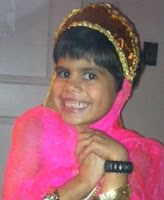Some people call it "Post-Adoption Depression", because it can happen for adoptive parents just like parents who give birth to children. It’s often compounded by travel fatigue, jet lag, and experiencing the unexpected during your adoption process and trip. Your new child’s arrival may also trigger some old emotions for you related to loss, infertility, or other difficult life issues.
- Have patience with yourself, as well as with spouse, child, family. As much as you can, limit the demands on yourself (emotionally, physically, and time-wise). Practice saying ” NO ” to requests outside your new parenting tasks, except to take time off to de-stress and relax.
- Be aware of the many stressors in your everyday life, and try to minimize these wherever possible (delegate, time out, etc.)
- You will be juggling many balls as you are also recovering physically and emotionally from your adoption trip. Keep these stressors separate in your mind from the typical stressors of a new child…everything isn’t baby’s fault or because you aren’t a good enough parent.
- Let the dishes and the dust go: At this point a clean is probably the sign of overstressed parent with not nearly enough time for a new child.
- Give yourself time to be sad or angry, but also find ways to be positive when possible; at the end of the day, find at least one blessing to count.
- You do not have to prove to anyone (including yourself) that you are the perfect parent and radiantly happy at all times. Children need real parents, not perfect, plastic ones.
- ”Happily ever after” and “love at first sight” are both rare. Most of us just bump along, since there are always bumps in the road.
- After the first two weeks, either switch with your spouse or gradually introduce a sitter/caretaker to your child, so that you can take some time away to recharge. Later, schedule a regular time away on night a week with a spouse or close friend to spend on yourself (no talking bills or kids).
- Keep visitors away or to an absolute minimum during the first few weeks.
- Get someone trustworthy ( perhaps one who volunteered to help) to take care of things like chores, meals, laundry, errands, so that you can rest and recover, and focus on playing with and getting to know your new child in positive ways.
- Be prepared to redirect or deflect intrusive questions or comments by others about your adoption choices or parenting style, and occasionally allow yourself to feel smug about the fact that those who criticize usually don’t know anything about international adoption or about you.
- Check in with your support systems, especially those from the adoption community who may understand better some of your challenges.
- After the first weeks if you feel things are getting out of control –or you are- get someone to take over some of your (preferable non-child) duties for a while so that you can have time to calm down, de-stress and talk out your frustrations and needs with someone who will listen and understand.
- If you can’t seem to get a handle on things after several weeks, look to your agency, support group, a counselor, or mental health professional for some additional guidance and assistance. Parenting is not an easy job.












